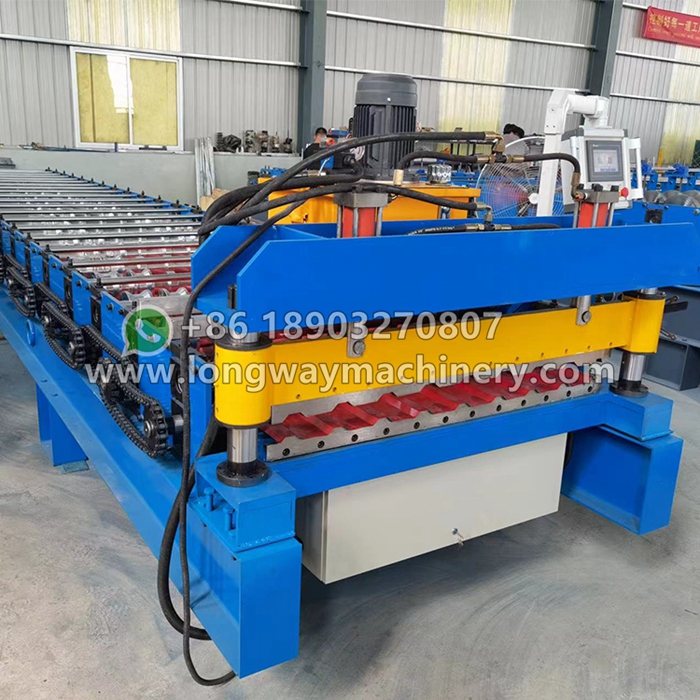Leading Manufacturers of Roller Forming Machines for Metal Fabrication Solutions
Understanding Roller Former Manufacturers An Overview
The manufacturing industry has seen significant technological advancements in recent years, particularly with the introduction and enhancement of roller forming technology. Roller forming, a process that involves shaping metal sheets and strips through a series of rolls, offers several advantages over traditional manufacturing methods. As industries seek efficiency, precision, and cost-effectiveness, roller former manufacturers have played a pivotal role in meeting these demands.
What is Roller Forming?
Roller forming, also known as roll forming, is a continuous and automated process where metal is shaped into desired profiles and sections through a series of rolling mills. This technique is commonly used to create complex shapes from materials such as steel, aluminum, and copper. Unlike traditional stamping or cutting, roller forming can produce parts with consistent dimensions and low scrap rates, making it an environmentally friendly manufacturing option.
Key Advantages of Roller Forming
1. Precision and Consistency One of the most notable advantages of roller forming is the ability to produce parts with tight tolerances. The machinery used ensures that every piece is manufactured with a high degree of accuracy, which is critical for industries that require specific dimensions for assembly.
2. Continuous Production Roller forming can operate continuously, allowing for high-volume production runs. This capability is essential for manufacturers facing high demand, as it ensures that production lines remain efficient and output remains consistent.
3. Material Efficiency The process is designed to minimize waste, with only small amounts of material left as scrap. This efficiency not only reduces costs but also lessens the environmental impact of manufacturing operations.
4. Flexibility Manufacturers can easily adapt roller forming machines to produce different profiles or adjust the design as required by clients. This flexibility makes it suitable for various industries, including construction, automotive, and appliance manufacturing.
The Role of Roller Former Manufacturers
roller former manufacturers

Roller former manufacturers are responsible for designing and producing the machinery and equipment necessary for the roller forming process. They play a crucial role in ensuring that end users can harness the benefits of roller forming technology. Here are some key aspects of these manufacturers
1. Innovation and Technology Leading roller former manufacturers continually invest in research and development to improve the efficiency and capabilities of their equipment. Advanced features such as programmable controls, automated adjustments, and integrated quality control systems are becoming standard in modern machines.
2. Customization Each industry has unique needs, and roller former manufacturers offer customization options to meet specific requirements. This could include specialized roll designs, adjustable features for different materials, or tailored solutions for intricate profiles.
3. Support and Maintenance Beyond just selling equipment, reputable manufacturers provide ongoing support and maintenance services. This ensures that clients can maximize the lifespan and efficiency of their roller forming machines, addressing any issues that may arise during production.
4. Training and Resources Many manufacturers offer training sessions or resources for clients. This helps ensure that personnel are well-equipped to operate the machinery, understand its capabilities, and troubleshoot minor issues independently.
Industry Applications
Roller forming is employed across various sectors. In the construction industry, it is used to create roof panels, gutters, and structural components. The automotive industry relies on roller forming for producing vehicle frames, chassis parts, and trim elements. Appliance manufacturers use roller-formed parts for items such as refrigerators, ovens, and washing machines, benefiting from the process's efficiency and precision.
Conclusion
As industries continue to evolve and demand more from manufacturing processes, roller former manufacturers will remain at the forefront of innovation in metal forming technology. Their commitment to precision, efficiency, and adaptability will enable manufacturers to produce high-quality components that meet the ever-changing needs of the market. With the interplay of technology and expertise, roller forming will undoubtedly play a vital role in the future landscape of manufacturing.
-
Roof Panel Machines: Buying Guide, Types, and PricingNewsJul.04, 2025
-
Purlin Machines: Types, Features, and Pricing GuideNewsJul.04, 2025
-
Metal Embossing Machines: Types, Applications, and Buying GuideNewsJul.04, 2025
-
Gutter Machines: Features, Types, and Cost BreakdownNewsJul.04, 2025
-
Cut to Length Line: Overview, Equipment, and Buying GuideNewsJul.04, 2025
-
Auto Stacker: Features, Applications, and Cost BreakdownNewsJul.04, 2025
-
Top Drywall Profile Machine Models for SaleNewsJun.05, 2025








